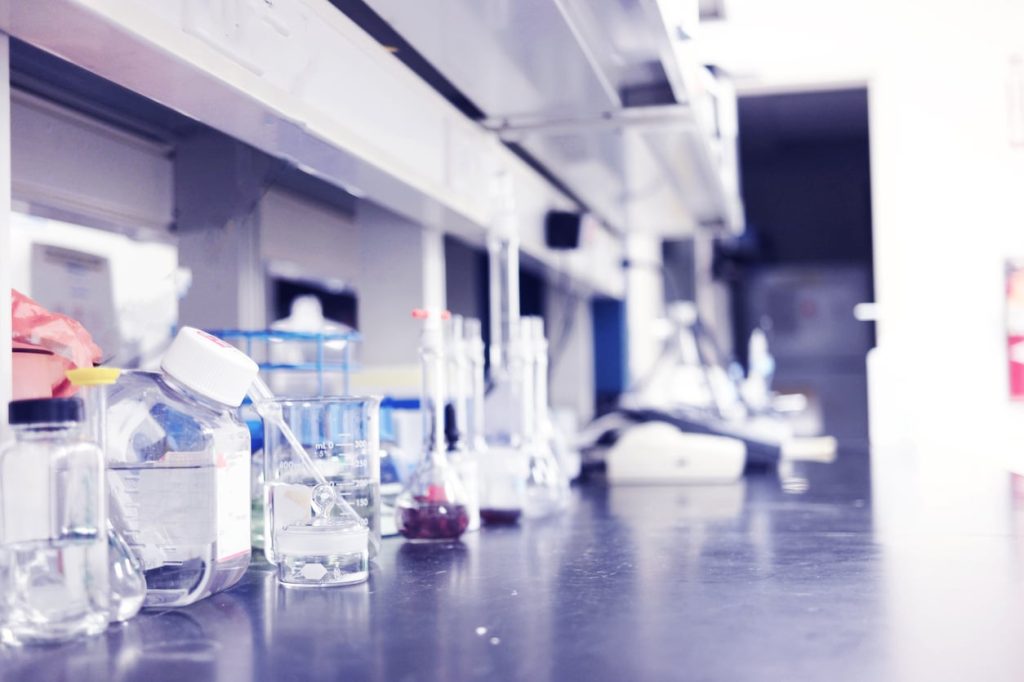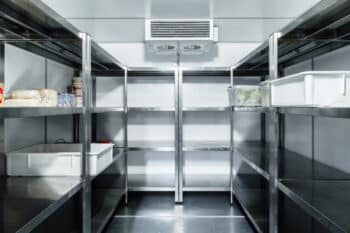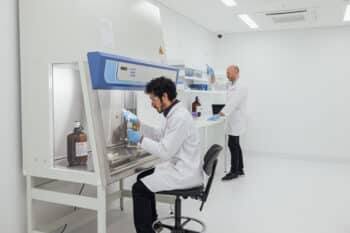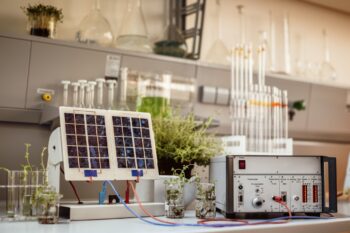Keeping your lab organised is a commitment that’s well worth investing in. If the lab you work in is prone to mess or disorganisation, then you’ll know it’s the little things that add up. A laboratory that doesn’t practice good upkeep will soon encounter the frustrations associated with disorganisation – from the wasting of materials and man hours, to the monetary resource that a poorly looked-after lab can squander.
An organised lab ensures greater efficiency and improved productivity, resulting in an environment that supports and promotes valuable research. More than simply keeping benches clean and tidy, good organisation extends to healthy workplace habits, setting practical rules for cataloguing and organising materials and enforcing professional conduct with regards to experimentation.
Here, we’ll run through some tips you can use to help keep your lab’s tools, materials and paperwork organised.
Organise your smart bench
An organised lab work bench is conducive to a less error-prone and more efficient working environment. It might mean correcting some poor habits you’ve picked up and mean cleaning up more frequently, but the benefits are worth it. Consider doing the following next time you’re in the lab:
- Keep all pipettes, tools and even the rubbish bin on the same side as your dominant hand
- Place common solutions on the other side of your bench
- Stow stock solutions and less frequently used solutions or devices on the upper shelves
- Place your lab notebook as far away from the experimentation area as possible to avoid spillages on it
- Retain your own scissors, labelling tape, paraffin, wipes and marker pen. This will save you frequently moving around the lab for said items, and get you in the habit of labelling items. Be sure to write your name on the labels, too
And don’t forget to conduct audits of your lab bench every six months. Take note of any stock you need as well as any supplies you haven’t used for a long time. Store these supplies away to make room for materials that are used more frequently.

Minimise your supply surplus
If your lab frequently places redundant orders, then the results can incur large annual costs. Unexpected depleted supplies can also delay experiments by weeks too. The cost alone should be enough to make a lab revise its ordering habits, but the wasted time can build up.
Ensure proper ordering protocols are put in place to correct these errors, as well as to verify that all materials will be in stock by the time they’re needed. Make it laboratory policy to place a purchase order when reagents fall below a certain level.
If duplicate orders are also a problem, then it might be worth looking into who’s making the orders and who’s responsible for approving them. Poor bookkeeping often results in errant numbers, so make sure whoever’s in charge has a grasp of working with spreadsheets.
Outline proper research conduct
To ensure less haphazard research and experimenting, guidelines around proper research conduct should be drawn up. The UK’s Medical Research Council, for example, has its own guidelines that advise that prior to conducting experiments, staff should plan and allocate materials and resources, consider the physical motions of performing the experiment, and have their lab manager approve a documented experimental plan.
Creating guidelines can identify weak spots and requirements before a problem arises and the experiment needs repeating.
Schedule the lab accordingly
A lab’s size often correlates to how easy it is to organise lab meetings and events. The bigger things are, the more difficult it becomes to carry these things out. What’s more, any materials or equipment that have not been properly scheduled or maintained can create bottlenecks and stop members performing experiments as planned.
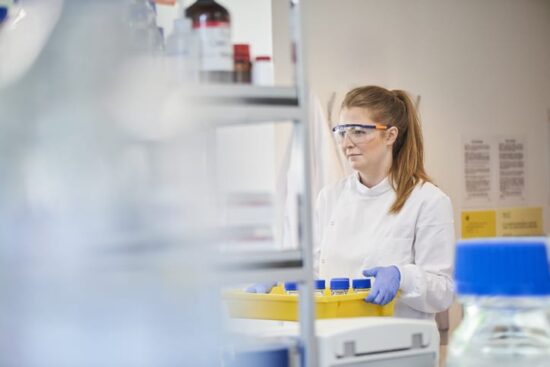
Luckily, there are plenty of research management apps you can use to book in instruments and chores that require completion, while also providing an overview of everyone’s workload too.
Keep your notebook neat
When it comes to your notebook, you want things to be clear and easy to find. This will help you and anyone continuing your work in the future to find the necessary information without any problems.
- Leave pages blank at the beginning of your laboratory notebook for a table of contents. Number these pages and keep this section updated.
- In every notebook entry, include a date, title, hypothesis or objective, materials and methods, experimental observations and analysis in every entry. This is essential for your own reference, as well as anyone else using your notebook for research purposes.
- Include dates and page numbers on every page so that you can quickly and easily refer back to a specific page or experiment. Don’t forget to label any equipment with the corresponding page number for further reference if needed.
- When correcting errors use a single strike line through the mistake. Data and initial any corrections and include a brief explanation (“misspelled”, for example) to help prevent confusion for anyone trying to read through your work.
Establish an electronic filing system
When saving computer files, it helps to create a folder structure that everyone in the lab who has access to your files is aware of. Grouping files by projector topic might be most beneficial, or perhaps grouping things by data type, job function and specific task makes more sense to you. Either way, label your folders with clear and descriptive names.
Likewise, your files should be labelled in the same way. It’ll be much easier to locate a file that includes a date, brief description and version number rather than something named “Experiment1” a few months down the line.

A strong reference filing system will also come in handy, allowing you to quickly and easily find references when it’s time to write up your findings. Additionally, organising these references into topics and sub-topics will also come in useful.
Planning a complete lab redesign? Get in touch with a member of our team to see if we can help. For more information about our bespoke fitted labs, visit our homepage or call our team on 01223 894 833.

